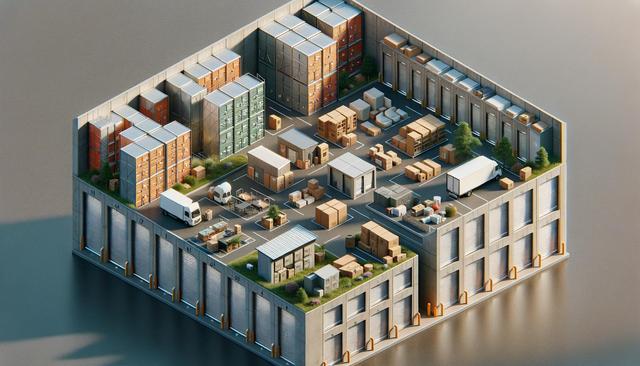Understanding Different Types of Storage Units
When considering storage options for rent, it’s helpful to understand the variety of unit types available. Storage units come in multiple forms, each suited to different needs. The most common types include indoor units, outdoor drive-up units, and climate-controlled spaces. Indoor units are typically accessed via a hallway within a larger facility, offering extra protection from weather and dust. Outdoor drive-up units allow you to pull your vehicle directly up to the unit, making loading and unloading more convenient, especially for heavy or bulky items.
Climate-controlled units are especially useful for storing sensitive items, such as electronics, documents, or antique furniture. These units regulate temperature and humidity, helping to preserve your belongings over time. Some facilities also offer vehicle storage, which can include covered spaces or enclosed units for cars, boats, or motorcycles. Choosing the right type of unit depends on what you need to store and how frequently you plan to access your items.
Choosing the Right Size for Your Needs
One of the most important considerations when renting a storage unit is selecting the appropriate size. Storage facilities often offer a range of unit sizes, from compact lockers to large garage-like spaces. Here’s a general guideline for common sizes:
- 5×5 feet: Ideal for storing small personal items, boxes, or seasonal decorations.
- 5×10 feet: Can accommodate a small room’s worth of furniture and boxes.
- 10×10 feet: Suitable for the contents of a one-bedroom apartment.
- 10×20 feet or larger: Good for multi-room homes or business inventory.
Assessing your space needs in advance can help you avoid paying for more room than necessary. Many facilities provide sizing guides or allow on-site visits to help you make an informed decision. If you’re unsure, start with a detailed inventory of the items you plan to store and consult staff for recommendations based on your list.
Security and Accessibility Considerations
Security is a key factor when evaluating storage options for rent. Most modern storage facilities implement several layers of protection to safeguard your belongings. Common security features include:
- 24-hour video surveillance
- Electronic gate access with personal codes
- Individual unit alarms
- On-site staff during business hours
In addition to security, accessibility plays a major role in determining which facility is right for you. Some storage units offer 24/7 access, while others have set hours. Consider your schedule and how often you’ll need to retrieve or add to your stored items. For businesses, frequent access may be essential, while for seasonal storage, limited access might be acceptable. Also, check whether the facility provides carts, elevators, or drive-up access to ease the moving process.
Short-Term vs. Long-Term Rental Options
Storage units can be rented on a short-term or long-term basis, offering flexibility based on your needs. Short-term rentals are ideal for temporary situations, such as moving between homes, home renovations, or college students storing items over summer break. These rental agreements often run month-to-month and allow you to cancel with short notice.
Long-term rentals may be more cost-effective if you plan to store items for an extended period. Some facilities offer discounted rates for longer commitments or pre-paid options. For businesses, long-term storage can serve as a reliable extension of office or warehouse space. When deciding between short-term and long-term options, consider the length of time you’ll need the unit and whether your storage needs might change in the future.
Additional Features and Services to Consider
Beyond basic storage, many facilities offer added features that can enhance the rental experience. These services vary by location, but common extras include:
- Online account management and bill payment
- Package acceptance for business deliveries
- Moving supplies like boxes, tape, and locks sold on-site
- Truck rentals or moving assistance partnerships
Some facilities even provide climate monitoring, pest control programs, and regular maintenance to ensure a clean and safe environment. If you’re storing valuable or fragile items, these features can provide additional peace of mind. It’s worth comparing what different facilities offer, as even small conveniences can make a big difference in your overall experience.
Conclusion: Finding the Right Fit for Your Storage Needs
Whether you’re downsizing, managing seasonal belongings, or expanding your business, storage options for rent offer a practical solution to free up space without parting with important items. By understanding the types of units available, assessing your size requirements, prioritizing security and access, and exploring lease flexibility, you can find a storage solution that fits your specific needs. Take the time to compare facilities, read reviews, and ask questions to ensure a smooth and satisfactory rental experience.


